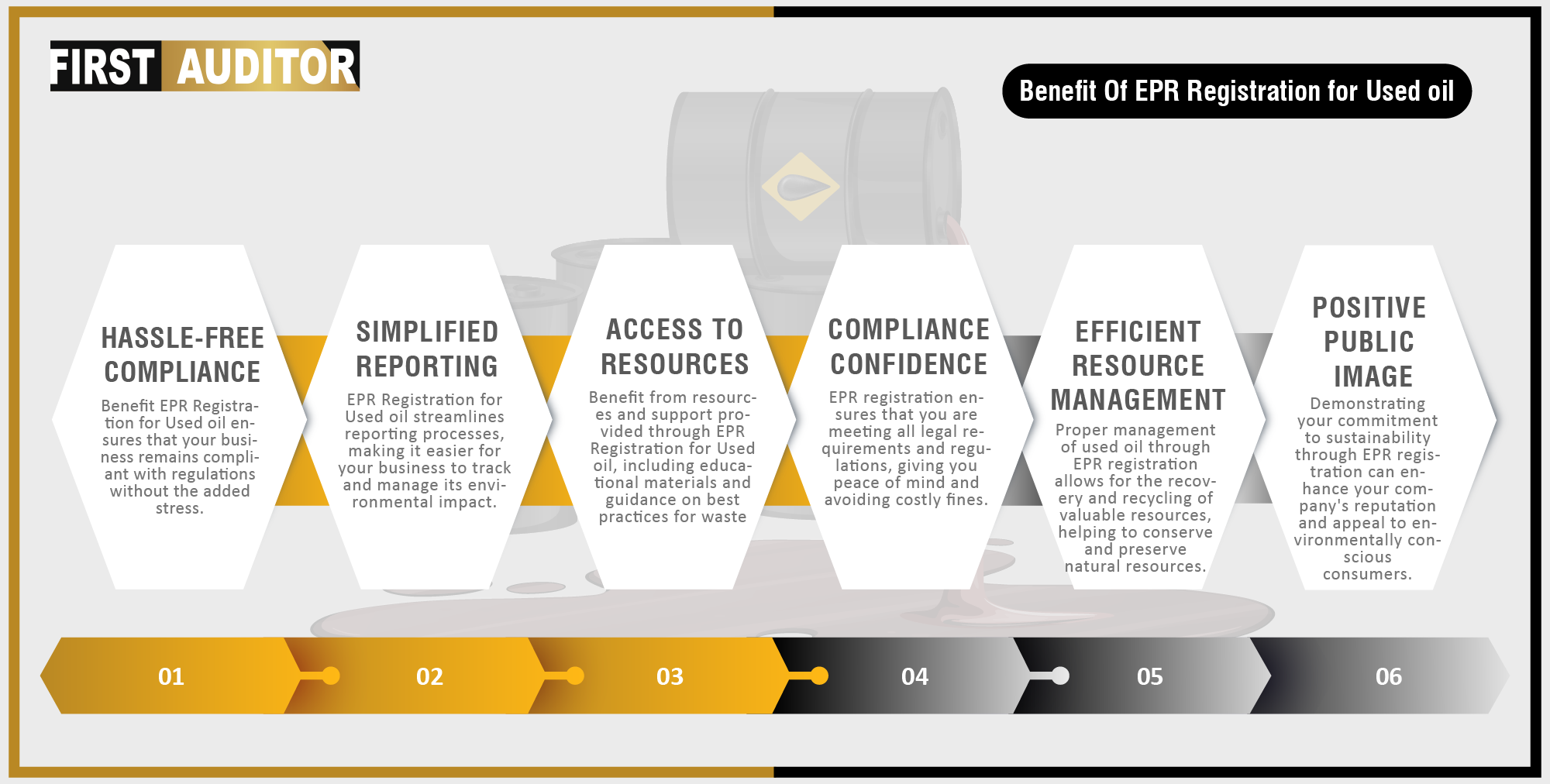Extended Producer Responsibility (EPR) for used oil is a policy that requires producers, importers, and recyclers of used oil to take responsibility for its proper management. The EPR for Used Oil was updated in 2023 and came into effect on April 1, 2024.
Producers, collection agents, recyclers, used oil importers, and brand owners in India can now apply for EPR registration for used oil online through the centralized CPCB EPR portal.
The process of Extended Producer Responsibility (EPR) registration for used oil necessitates meticulous documentation and strict adherence to environmental regulations.
Prior to commencing the registration process, companies must gather crucial information regarding their practices for managing used oil, including the volume generated and methods of disposal employed.
Detailed records of the collection, storage, transportation, and recycling of used oil must be maintained by companies to demonstrate their compliance with EPR regulations.
Companies are obligated to submit an application to the designated regulatory authority, providing accurate data and supporting documents as evidence of their commitment to environmental stewardship.
Throughout the registration process, it is of utmost importance to engage with relevant stakeholders and seek guidance from EPR experts to ensure seamless compliance and successful registration.
By adhering to EPR rules, companies can demonstrate their commitment to environmental stewardship and successfully register for EPR.
By embodying transparency, diligence, and adherence to EPR requirements, companies can make significant contributions to the sustainable management of used oil and the protection of the environment.
Companies must gather essential information about the volume of used oil generated and the methods employed for its disposal before initiating the registration process.
To demonstrate adherence to EPR rules, companies must maintain records of the collection, storage, transportation, and recycling of used oil.

The EPR (Extended Producer Responsibility) Certificate for Used Oil Registration is a regulatory requirement ensuring that companies responsible for generating used oil have a plan for its environmentally safe collection, recycling, and disposal. This helps mitigate the harmful effects of used oil on the environment.
Businesses and organizations involved in activities that produce used oil, such as automotive workshops, manufacturing units, oil refineries, and service stations, are required to register for an EPR Certificate to ensure the responsible handling of used oil.
To apply for the EPR Certificate for Used Oil, you will need the company's registration details, a used oil management plan, contracts with authorized recyclers, details of used oil production, and compliance documents proving the company's commitment to environmental safety.
Businesses can apply for the EPR Certificate for Used Oil by submitting an application through the relevant government environmental portal, such as the Central Pollution Control Board (CPCB) or State Pollution Control Board. The application includes uploading necessary documents and paying applicable fees.
Non-compliance with EPR registration for used oil can lead to severe penalties, including fines, suspension of operations, or legal action by environmental authorities. Businesses must comply with regulations to avoid these penalties.
The EPR Certificate for Used Oil is generally valid for one to three years, depending on the regulations in place. Businesses must renew their certificate before it expires to ensure continued compliance with environmental laws.
The processing time for the EPR Certificate for Used Oil can range from a few weeks to a couple of months, depending on the completeness of the application and the time taken by authorities to review and approve it.